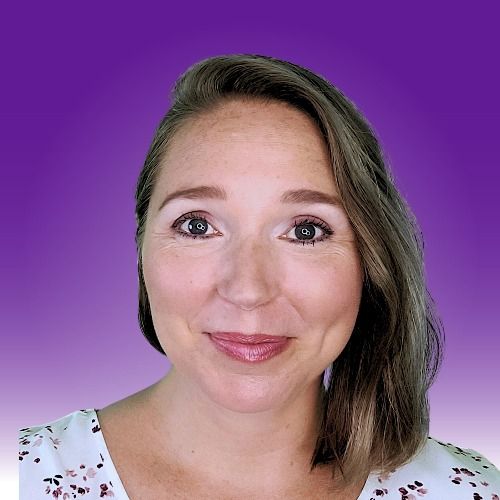Episode 119
Successfully Managing Your Production Budget
Episode 119 - Successfully Managing Your Production Budget
In this episode of the Faith and Family Filmmakers podcast,Geoff interviews Margot Ransom, CEO and founder of ProdCo Accountants. With over 25 years of experience in production finance, Margot provides insights into the critical role of accounting in filmmaking. She discusses common pitfalls in budgeting, the importance of cost control, and best practices for managing a production company's finances. Margot also shares practical advice on using financial platforms and software to streamline operations, emphasizes the need for real-time reporting, and highlights her work on notable projects such as 'Nefarious' and 'After Death.'
Highlights Include:
- Welcome and Introduction
- The Importance of Accounting in Filmmaking
- Common Pitfalls in Production Budgeting
- Real-Time Reporting and Cost Control
- Working with Line Producers
- Production Company Accounting vs. General Business Accounting
- Projects and Clients: Success Stories
- Best Practices for Budget Management
- Contact Information
Bio:
Margot Ransom is the CEO and Founder of Prod Co Accountants.
With over 25 years of accounting experience in production finance, Margot understands business and accounting systems. She knows what information owners and producers need to manage the business effectively. She has spent her career bringing smooth, predictable financial operations to production companies.
An effective communicator, she can cut through the sometimes complex and mysterious world of accounting and translate it to simple English.
https://www.linkedin.com/in/margot-ransom-prodcoaccountants/
https://prodcoaccountants.com/
https://cashflowprojection.prodcoaccountants.com/opt-in-projection
https://tinyurl.com/SampleStreamerCOA
https://tinyurl.com/3PitfallsTrackingShowCosts
https://www.whoisnefarious.com/
https://tinyurl.com/LightsCameraKentucky
https://tinyurl.com/ExploratoryCallMargot
Screenwriters Retreat - Mexico: https://www.faffassociation.com/writers-retreat
Jaclyn's Book - In the Beginning, Middle and End: A Screenwriter’s Observations of LIfe, Character, and God: https://www.amazon.com/dp/B0D9R7XS9V
VIP Producers Mentorship Program https://www.faffassociation.com/vip-producers-mentorship
The Faith & Family Filmmakers podcast helps filmmakers who share a Christian worldview stay in touch, informed, and inspired. Releasing new episodes every week, we interview experts from varying fields of filmmaking; from screenwriters, actors, directors, and producers, to film scorers, talent agents, and distributors.
It is produced and hosted by Geoffrey Whitt and Jaclyn Whitt , and is brought to you by the Faith & Family Filmmakers Association
Support Faith & Family Filmmakers Our mission is to help filmmakers who share a Christian Worldview stay in touch, informed, and inspired. If you would like to assist with the costs of producing this podcast, you can help by leaving a tip.
Enter the Faith & Family Screenwriting Awards festival
Faith and Family Screenwriting Academy: https://www.faffassociation.com/
Script Notes and Coaching: https://www.faffassociation.com/script-services
Copyright 2024 Ivan Ann Productions
Transcript
Welcome to the Faith and Family Filmmakers Podcast.
Geoff:I'm Jeff, and our guest today is Margo Ransom.
Geoff:Margo Ransom is the CEO and founder of Prod Coac Accountants.
Geoff:With over 25 years of accounting experience in production finance, Margo understands business and accounting systems.
Geoff:she knows what information owners and producers need to manage the business effectively.
Geoff:she has spent her career bringing smooth, predictable financial operations to production companies.
Geoff:An effective communicator, she can cut through the sometimes complex and mysterious world of accounting and translate it to simple English.
Geoff:Maybe even make it, dare we say, fun?
Geoff:Welcome, Margo.
Margot:Thanks, Geoff.
Margot:It's so good to be here.
Geoff:Yes, I'm actually quite excited because this is a, A piece of the puzzle, um, in the filmmaking world that we have not, um, we've not fit that piece of the puzzle into our podcast yet, so it's important.
Margot:Yes,
Margot:indeed.
Geoff:and obviously an important part of filmmaking.
Geoff:I think it's probably not the first one that would come to most people's minds.
Margot:No,
Geoff:I also think that without it being done well, things aren't just gonna happen.
Margot:exactly.
Margot:I always say they talk about the entertainment business, and that is in fact what it is.
Margot:There are a lot of brilliant creators in it, but oftentimes they just aren't wired for that financial piece, you know, which is where we come in.
Geoff:right.
Geoff:I was gonna say, Um, you know, your bio had that little Joke, if I call it that.
Geoff:Uh, you know, maybe even make it fun.
Geoff:guessing that most people, not so inclined, managing the finance of their production or production company is anything but fun.
Margot:I think so.
Margot:And you know what?
Margot:It's, I believe it's probably maybe intimidating, you know, but when you do it day in and day out, I mean, the numbers tell a story,
Geoff:Oh yeah.
Margot:you know, we help people read a finance, learn how to read a financial statement.
Margot:And then it's a, a light bulb goes off for them once they kind of get a grasp on it.
Margot:And that's very satisfying to us.
Geoff:Yeah, and it would be very important to keep those finances in order, in order to be successful in creating the film, first of all, but also in maintaining a successful company.
Margot:Exactly.
Margot:And, you know, making sure that the film is profitable.
Margot:Because, in addition to the passion, you know, the investors, everybody wants to see a profit on it, you know, and then there's the overall company too.
Margot:Sometimes we work with, uh, it's project specific in our engagement, but oftentimes we work with, a company, so we're taking care of all the accounting for their production company, and we go take care of all their projects.
Margot:But either way, it's obviously very important to keep a handle on that stuff, because it can spiral out of control.
Margot:We get lots of, people that we talk to that have, you know, they started out small, so they thought they could handle it themselves, and maybe that worked initially, but, um, you know, we've cleaned up many a mess also.
Geoff:I bet.
Geoff:so when it comes to projects, film projects, what are some common pitfalls that a producer might encounter when building their budget?
Margot:Okay, well, I'm just going to start with the low hanging fruit.
Margot:The easiest and most obvious one is not having enough built in for a contingency because human nature is to, this is another pitfall, overestimate the revenue or underestimate the cost.
Margot:the expenses, right?
Margot:So, um, in addition to that, you want to have a strict, uh, system in place to control the costs.
Margot:That's not part of building a budget, and we could talk about that a little bit later.
Margot:But poor cost control is a huge pitfall in this whole production accounting world.
Margot:And then I wanted to mention that for film in particular, you want to think about building an additional budget.
Margot:P& A budget outside of your production budget because for those that don't know, it stands for print and advertising.
Margot:So distributors oftentimes want to see that.
Margot:Sometimes they'll advance on these P& A funds, sometimes not.
Margot:You're expected to do it yourself, especially if you're self distributing, but that might be something else that First time producers haven't thought about.
Margot:So just be mindful of that.
Margot:And there are some rules of thumb.
Margot:I've heard 25 percent of the budget or 50 percent of the budget and that can sound very intimidating, which I do not want to discourage anyone, you know.
Margot:and I always say God's got plenty of money.
Margot:If he wants something done, it will get done.
Margot:So, that's my list for common pitfalls.
Geoff:So a big part of it is obviously keeping track of the spending as it happens, so that you stay within budget.
Geoff:Right.
Margot:100%, 100%.
Margot:And that brings me to another point about real time reporting, you know, and what we can get more into detail on that later on the specific platforms that we use in software, but it's vital, you know, uh, Here's another common pitfall that you didn't ask me about during production, but I'm going to bring it up anyway, is, you know, producers might be using a debit card or writing checks in the office that the accountant doesn't know about, and then, you know, they see them on the bank statement, they don't know what they're for.
Margot:In particular, debit cards are really a hassle to use.
Margot:I know they're quick and easy, like, oh, we have a bank account, we'll just use the debit card, but if the accountant sees all these transactions coming through the bank and they don't know what they're for, there, there's going to a delay in the reporting, you know, so we have systems to handle all that and make sure that Card reporting gets into the cost report in a timely manner.
Margot:And it's all about controls.
Margot:I have a background as a controller in TV production, so that's the way my mind works, is keeping a strict handle on these creatives that their agenda, rightly so, is to just get the show done, get the project done.
Margot:You know, but it's my role to keep it reined in.
Margot:So that's what we do.
Geoff:So how closely would you work then with the line producer?
Margot:We usually work very closely with the line producers.
Margot:Actually, that's a great question.
Geoff:would that be after the project starts or in advance of
Geoff:the project beginning?
Margot:the project and after it begins, yep.
Margot:Because, well, the budget has been built when the project starts, and obviously there are fluctuations during the project, but That's what you manage in the cost report.
Margot:So, again, we're not responsible for managing the budget.
Margot:We're just responsible for reporting.
Margot:We're just the messengers, like, oh,
Margot:here, this is a problem.
Margot:You need to
Margot:address this.
Margot:But
Margot:we're not boots on the ground, so we don't
Geoff:in other words,
Geoff:the line producer is managing the budget and making the decisions.
Geoff:You're keeping track of it so the records are all in order.
Margot:Absolutely.
Margot:And so the line producer has visibility.
Margot:Oh, she's over on this, he or she is over on this line.
Margot:You need to make it up on another line.
Geoff:And so when it comes to the production companies, accounting for a production company, would that be so different than, um, you know, business accounting in general?
Margot:Well, that's a good question.
Margot:A debit is a debit and a credit is a credit, but there are certainly specifics to production company accounting because you have to know how the production industry works and sometimes projects are capitalized, sometimes not, you know, and you kind of need to know the ins and outs of that, uh, understand the information the producers need to see, not only at the production level, but at the company level.
Margot:And at the company level, much of it is, uh, analogous to any business.
Margot:You know, when are you going to run out of cash?
Margot:You have to keep a handle on your cash flow and not bloat your overhead.
Margot:You didn't ask me this, but I'm just going say it too, that that's a common problem that I've seen in production companies is when you get a new contract, you got to staff up, but you want to be careful about it because building up your overhead, it's, it's like gaining weight.
Margot:It's much easier to gain weight than to lose it, you know, and as everybody knows, our industry is not, you know, smooth.
Margot:There are peaks and valleys in the cash flow.
Margot:So, uh, you want to be careful about bloating your overhead.
Margot:So that's another pitfall that you want to look out for.
Margot:But the short answer to the business side of it is yes, there are definitely similarities with regular, I'll call it, businesses.
Geoff:So what are some signs that a production company owner might watch for, um, when they're potentially going to run out of cash, because ultimately we've got to make sure we don't do that.
Margot:100%.
Margot:Well, I like to recommend that for my own company and for when I, before I started my businesses where the companies that I worked as a controller, we always had a global 12 month cashflow projection going out so that we could see when we were going to go off that cliff and make contingency plans or when we needed to cut or when do we get a bank loan or when, you know, do we need to make that next sale or all those things.
Margot:So, That's really important, is just to have that visibility.
Margot:And here's something else that's not spoken about a lot, too.
Margot:A general rule of thumb in business is that, um, well, actually I'm going to back up and say for TV and film in particular, is when you're building a budget, you want to have at least 35 percent overhead costs in there.
Margot:And by overhead costs, I mean costs that you can, Bill back to yourself, you know, like the producer fee or maybe if you own a studio or your own equipment or something like that.
Margot:35 percent is a healthy, overhead number to have in the budget and obviously the larger that number can be, that percentage, the better.
Margot:But, uh, I would shoot for at least 35 percent as a rule of thumb.
Margot:When you're building a budget.
Geoff:That's very interesting.
Geoff:it can't all be going out,
Margot:Exactly!
Geoff:company.
Margot:Exactly, it won't turn a profit.
Margot:Exactly.
Geoff:Well, you know, I'm interested in some of the projects that you've worked on.
Geoff:Uh, what would be some that, our listeners, for example, would be familiar with,
Margot:Sure.
Geoff:projects that you're, particularly proud of?
Margot:Oh,
Margot:yeah, I love that question.
Margot:Uh, we signed up, I don't know, half a year ago or something like that at the very tail end of that film Nefarious that came out.
Margot:And, and now we're working with Chuck Consolman and Carrie Solomon, helping them launch their distribution business.
Margot:So I'm very proud to be working with them.
Margot:Um, we're also working with Cypher Studios and they are the fellows behind After Death, which was on Angel Studios.
Margot:Also an excellent project.
Margot:Uh, we're currently working on a big budget audio bible in Spanish with A list actors.
Margot:Very
Margot:proud of that.
Margot:It's, I love what I do, yeah.
Margot:On the, I'll call it the worldly side, air quotes, um, we have been retained by Wrigley Media Group.
Margot:And that's the Wrigley of Gum fame.
Margot:They're based in
Geoff:Oh, yeah.
Margot:So we're doing the accounting for all the projects that are run through there.
Geoff:And you're talking about production
Margot:Oh yeah, Wrigley Media Group is for sure a production company.
Margot:Yep.
Margot:We recently completed working on a Liza Minnelli documentary.
Margot:We worked a while back on a Willie Nelson documentary, and we also count ATS among our clients.
Margot:They're probably not a household name, but they are production adjacent, and they fabricate the sets for American Ninja Warriors.
Margot:And they've also done some work for the Beast Games, so that's a fun company to
Geoff:Mm.
Geoff:Yeah.
Geoff:So you've worked on a lot of projects, uh, various, no doubt in size and scope, what are some of the differences, I'm sure there must be some, between working on, uh, larger productions and smaller productions.
Geoff:we've, we've got listeners who have worked on large productions and some who are working on micro budget projects.
Margot:Yes.
Margot:Well, uh, a big difference that jumps out at me is on the smaller projects.
Margot:Uh, ironically, even though there's a smaller number of budgets and a smaller amount of money that we're working with, it tends to want to get more chaotic just because they don't, have the resources and the people management to kind of work with the accountant, you know, so we make it work, but from an accounting perspective, it, it can be challenging just because of the lack of resources or time for the people that are on the ground there to focus on what needs to be focused on.
Margot:So, there's that.
Margot:I think working on films in particular can Kind of be a rollercoaster wild ride because there's schedules, there's budgets, there's all those things.
Margot:And like I mentioned, at another point, that's our job is to reign them in.
Margot:But for some reason, sometimes it's smoother with the bigger projects.
Margot:And I think that's just a question of the resources that they have.
Geoff:Yeah, I can imagine, as we've talking and you've been answering the question, that smaller budgets, um, they're probably more inclined to be working with less than what they really need,
Geoff:and
Margot:Yes.
Margot:A hundred percent.
Margot:On every level.
Margot:Yeah, it affects everything.
Margot:So, uh, you know, we do it, especially if it's a passion project that we want to work with the people, but, um, that might be something I need to mention too, is make sure you have enough budget in there for an accountant.
Margot:You know?
Geoff:Uh huh.
Geoff:Uh huh.
Margot:get in touch with me.
Margot:If they want to know what that costs.
Geoff:Awesome.
Geoff:We'll talk, about, how people can get a hold of you at the end, and of course we'll put some links in the show notes as well.
Geoff:I encourage people to, uh, to contact Margot and make sure you get your accounting done right.
Geoff:But, uh,
Geoff:let's go back for a moment, and talk a little bit more about some best practices.
Geoff:you know, whether we're talking about those smaller budgets as we just were, that have some challenges, or, whatever the case may be, what are some good practices with regards to, um, maintaining the budget, staying within the budget, making sure you have enough budget, Uh, you know, not making mistakes that are going to cause you problems.
Margot:that's a great question.
Margot:I would say that big picture, the stakeholders, the producer, whoever owns the project, needs to be looking at the numbers.
Margot:Sometimes they don't want to, but like you got to know the truth, even if it's ugly.
Margot:And, here's some don'ts that I want to, I don't want to see when our clients do them.
Margot:Don't use, platforms like Venmo or PayPal.
Margot:And I know it's tempting if you're just standing with somebody and they need to get paid right then to just Venmo them too.
Margot:But nearly a hundred percent of the time, those cause problems.
Margot:Namely, again, your accountant doesn't know about those payments.
Margot:And so they don't know about it until they see it on the bank statement, or if they're logging into the bank, And it doesn't say who the payee is, or it might, it might say payable to John Doe, but the accountant has no idea what that's for.
Margot:It causes more work.
Margot:They need to contact whoever made the payment, try and figure out what it's for, so we can get in the cost report.
Margot:It's just a pitfall.
Margot:And another thing that we, uh, pretty much insist our clients do not do is just write hand checks from the office.
Margot:Again, I know it's tempting when someone's standing in front of you Oh, we just need to get them paid, but just let the accountant do their job.
Margot:Right?
Margot:We have systems so that the cost will show up in the cost report almost in real time.
Margot:So that's important.
Margot:Uh, those are the two biggies Oh, and I'll just say, Let the accountant do their job, you know, and just don't make those payments.
Margot:don't go rogue like that
Geoff:Yeah.
Geoff:the first thing you said actually, seemed like a big one seemed obvious but, but maybe not, is they need to have their eyes on the numbers.
Geoff:it might be easy just to, you know, focus on getting the job done and not want to look at that or just be leaving it to somebody else, but, they can be making the wrong decisions if they don't actually know the facts.
Margot:That's a really good point.
Margot:And they don't have to get into the nitty gritty, you know, they can just look at the, if they have somebody that they trust that is producing correct numbers, they can just look at the bottom line of the cost report.
Margot:Are we over or under?
Margot:And then in the general categories, where are we over?
Margot:Too many shoot days, you know, whatever it is, catering, wardrobe.
Margot:and then if they need to drill down, maybe they'll have somebody that can investigate it more or they can do, make whatever adjustments they need to make.
Margot:But a hundred percent, it's important for somebody to be keeping a close eye on those numbers.
Margot:And whenever we produce a cost report, I mean, they're available anytime for a client, but often they just ask us for the report.
Margot:But we sometimes have to say, well, you know, you're coming in at X cost at this moment, but there are all these unknowns that are on the bank statement that you still haven't given us receipts for.
Margot:We have to have no idea what they're for.
Margot:So that totals, whatever it is, 50, 000.
Margot:And they need to know about that, but it, causes more work and time and problems for everybody.
Margot:If they just don't stay within the systems that the accountant has carefully laid out and put in place.
Geoff:and uncertainty.
Margot:exactly.
Margot:That's not good for business, any business...
Margot:uncertainty.
Geoff:You mentioned a little bit earlier about softwares and platforms that help with the whole process.
Geoff:So when we get into the second half of our interview, I'd like to actually go a little deeper into that.
Geoff:Information that could be helpful for, uh, for production companies and those who are working on projects and, you know, what they can do streamline the process to minimize errors and, you know, stay on top of things, keep things timely and, and help you do your job.
Geoff:But I'd love to talk more about that.
Geoff:But before we go, for those who are listening today, how can someone get a hold of you for more information and to find out how you can help them?
Margot:Well, of course, you can go to our website.
Margot:It's prodco, P R O D C O, accountants.
Margot:com.
Margot:I'm on LinkedIn, Margo Ransom with a T, that's Margo with a T.
Margot:Ransom like kidnapping money on LinkedIn.
Margot:they can email me.
Margot:mransom at prodcoaccounts.
Margot:com.
Margot:But really the best way is through the website.
Margot:There's a link to my calendar in
Geoff:Mm hmm.
Margot:and I can prep for the call, make sure that I have all the answers that you need.
Geoff:Awesome.
Geoff:And, uh, you also might run into her at a film festival or conference.
Geoff:Uh, we were both at Content a little while ago, and, I know you're, you Going to NRB, so if you're attending film festivals and Christian conferences, you might meet Margot there.
Geoff:But we'll definitely get all those links in the show notes and make sure that people have access to them, because what you do is obviously very important.
Margot:Thank you.
Geoff:thanks for sharing with us today, and we look forward to talking with you more.
Margot:Okay.




